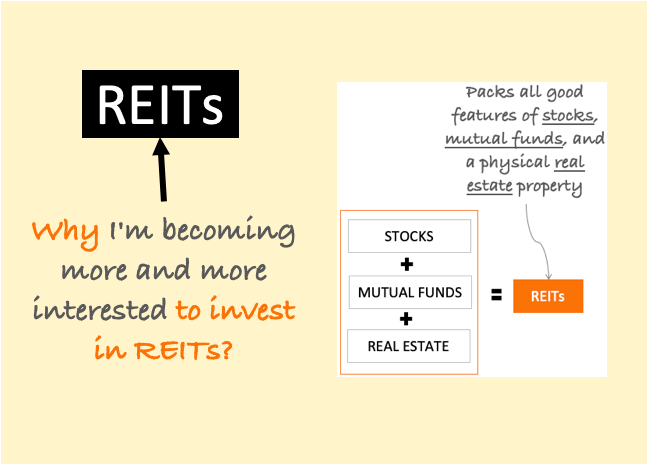🏠 Buying Vs. Renting Calculator
Summary:
- In 2025, Priya and Rohan, a Pune couple, weigh the pros and cons of a Rs.80 lakh home loan versus renting, revealing that buying a home offers long-term wealth despite high EMIs, while renting provides flexibility but may not build assets unless savings are diligently invested.
Introduction
Do you live in busy cities like Mumbai, Pune, Bangalore, Gurgaon, etc? Then, you too must have asked yourself this question at least once, Should I buy a house or keep renting? It’s a big decision, isn’t it? Your home is not just a place to live, it’s a dream. It is also a huge financial commitment, and sometimes, a headache too.
Today, let’s dive into this dilemma with a clear head.
I’m going to walk you through the story of a Pune couple. We’ll weigh the pros and cons of a home loan versus renting. We’ll share some thoughts on what makes sense in 2025. Maybe, 10-20 years back, these points may not have been so valid, but in 2025, we must see it from a different eye.
A House or a Pipe Dream?
Meet Priya and Rohan, a couple in their early 30s, living in Pune.
They earn a decent combined income of Rs.1.5 lakh per month.
Like most of us, they also dream of owning a home. But in Pune, a 2BHK in a decent area costs around Rs.1 Crore. That’s a huge number. To buy it, they’d need a home loan, and the EMI would eat up a big chunk of their salary.
On the other hand, renting a similar flat in that location can costs them about Rs.35,000 a month. Compared to a home loan EMI, it sounds much economical to rent the house.
But I’m old school. Paying rents have always felt like throwing money away. What do you think about it?
I’ve always believed that if you plan to settle in a city, buying a house early is a smart move. Renting feels like paying for something that never becomes yours.
But let’s not jump to conclusions.
Let’s disect it down with numbers and see if a home loan makes sense for Priya and Rohan in 2025.
The Math of a Home Loan
Let’s say Priya and Rohan take a Rs.80 lakh home loan for 20 years at an interest rate of 8.5%.
Their monthly EMI would be around Rs.69,500. That’s almost 47% their monthly income. Can they manage it? Maybe, but it will possible only after tightly budgeting all other expenses.
The rule of thumb is that your EMI shouldn’t be more than 35% of your income. In their case, if the couple pay an EMI of about Rs.55,000, it will withing their affordability limit.
So, paying a Rs.69,500 EMI is a stretch for sure.
But there’s a tiny silver lining. Home loans also come with tax benefits.
Under Section 24 of the Income Tax Act, they can claim a deduction of up to Rs.2 lakh per year on the interest paid. Plus, under Section 80C, they can claim up to Rs.1.5 lakh on the principal repayment.
For a couple in the 30% tax bracket, this could save them around Rs.1–1.2 lakh annually. That’s like getting a small bonus every year, right?
Still, the EMI is a big burden. What if they rent instead?
Their Rs.35,000 rent is much lower than the EMI, leaving them with extra cash. But renting has no tax benefits, and the rent will keep rising. In pune, rents increase by 5–7% every year.
In five years, their rent could be Rs.45,000 or more. Doesn’t that make you rethink renting?
Renting Is A Freedom or Financial Trap?
Renting gives you flexibility. Read this though provoking story of a wealthy person prefering to live on rent in Mumbai.
If you’re a millennial who loves switching jobs or cities, renting is perfect. There will be no EMIs tying you down, or no maintenance hassles. If Priya and Rohan are like this, they could move to a better flat or even a new city without worrying about selling a house.
But there is a catch with rents that not so visible to people in their 20s or 30s. Rent is a pure expense that adds zero value to your wealth. Every month, Rs.35,000 goes to their landlord, and that money just simply goes away. Its like your electricity or gas bill, you pay for the comfort. There is not value gain here.
Now, let’s try to think it from a different angle, the opportunity costs.
- Let’s say Priya and Rohan decides to stay on rent. This way they will save the difference between the EMI (Rs.69,500) and rent (Rs.35,000). Their saving will be about Rs.34,500 each month.
- What if they invest this in mutual funds? Historically, equity mutual funds in India have given 15%-18% annual returns over the long term. Let’s assume a conservative 15%.
- Over 20 year period (between years 2025 and 2025), a Rs.34,500 monthly SIP could grow to around Rs.5 crore.
- In year 2045, the value of same house will be Rs.3.5 Crore (assuming property prices grow at 6.5% annually).
- So, the SIP value (Rs.5 crore) will higher than the house’s value (Rs.3.5 crore) in 2045.
The above conculsion is very tempting, right? Especially for those peple who are currently prefering renting.
But here’s where I’ll ask you to pause.
Investing sounds great, but it’s not guaranteed. Why?
Most people do not have the discipline to invest regularly, especially when the amount is as big as Rs.34,500 and time horizon as long as 20 years. I’ll even go an extent to say that, less 5% investors would keep such a SIP running to 20 years.
Many of us would stop the SIP, sell the accumulated units to spend on vacations, cars, gadgets, emegencies etc.
Owning a house, on the other hand, forces you to save. By the end of the loan, you own an asset worth crores.
That’s a solid win, especially in a city like Pune where property prices rarely fall.
Mumbai vs. Pune: A Tale of Two Cities
Mumbai is a unique beast.
A Rs.1 crore flat in Pune gets you a decent 2BHK (850 SQFT Carpt) in the fair location.
In Mumbai, the same money could buy a small 400 SQFT 1-BHK in aread like Goregaon etc.
Property prices in Mumbai can grow at a similar 6.5% annually, but the entry cost is much higher. A home loan EMI in Mumbai would be even more expensive for Priya and Rohan. Plus, Mumbai’s rental yields (2–3%) are similar to Pune’s, so renting doesn’t give you much advantage. Remember, in Mumbai, you are anyways living in much smaller homes than Pune.
Let’s me tell you what I think about this.
if you’re in a Tier-1 city like Mumbai, buying a house can feel like chasing a mirage. But in a metro city like Mumbai or Delhi NCR, prices are even steeper. For couples like Priya and Rohan who may find even Pune expenses, they could consider buying a 1BHK in Pune for say Rs.50 lakh.
The EMI would be lower, around Rs.31,000. If they do not want to stay there, they can even rent it out for Rs.20,000 a month. This will cover about 70% of their EMI.
This way, they own an asset without compromising on their their expense budget a lot. I think this will be smart compromise between living on rent and buying a house.
A Case Study of A Renter Who Invested
Let’s look at someone who chose renting.
Meet Arjun, a 35-year-old IT professional in Bangalore. Instead of buying a Rs.60 lakh flat in 2015, he rented a similar one for Rs.25,000 a month. He invested the EMI equivalent (Rs.50,000) in mutual funds. Over 10 years, his investments grew to Rs.1.2 crore, while the flat’s value rose to Rs.1 crore as well.
Arjun’s ahead, financially. But he still doesn’t own a home, and his rent is now Rs.40,000.
If he wants to buy now, prices are higher and possibly, whatever he has accumulated via mutual funds in these 10-years, most of it will used up to buy the house. He will be left with about Rs.20 Lakhs, which I know will eventually get spent on interiors, etc.
Arjun’s story shows that renting and investing can work, if you’re disciplined. But most of us aren’t Arjun. Moreover, if you have to buy the house after 10-years, why not start from today. Arjun could have bought the house 10-years back and spare saving he had shold have been diverted to prepay the home loan. This would have been a more assured asset builder.
We must remember, that 99% of us don’t invest every rupee we save.
And let’s be honest, owning a home gives you a sense of security no mutual fund can match.
Conclusion
So, is a home loan worth it in 2025?
I lean towards buying, especially if you plan to stay in one city. A house is an asset that grows over time. In India, property prices have risen steadily, and they’re unlikely to crash.
Plus, a home loan forces you to save, and tax benefits sweeten the deal.
But don’t buy blindly. Make sure the EMI stays withing your affordability limit (use the above calculator to check your affordability).
If you’re in an expensive city like Mumbai, consider smaller homes in nearby areas like Thane. You can even rent them out to offset the EMI.
Renting makes sense if you need flexibility or can’t afford a loan.
But don’t fool yourself into thinking rent is “cheap.” It’s an expense that keeps growing. If you rent, invest the savings wisely, like Arjun did. Otherwise, you’re just paying someone else’s EMI.
What do Priya and Rohan decide? I think they will consider buying over renting. The later in life you buy the home, less financially viable it will be. Why? Because in later sates of your life, your focus should be on retirement panning and not on home purchase.
Have a happy investing.






